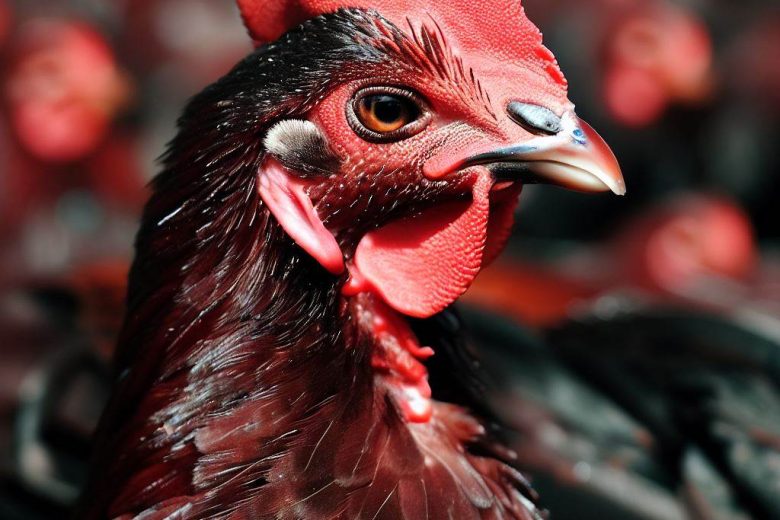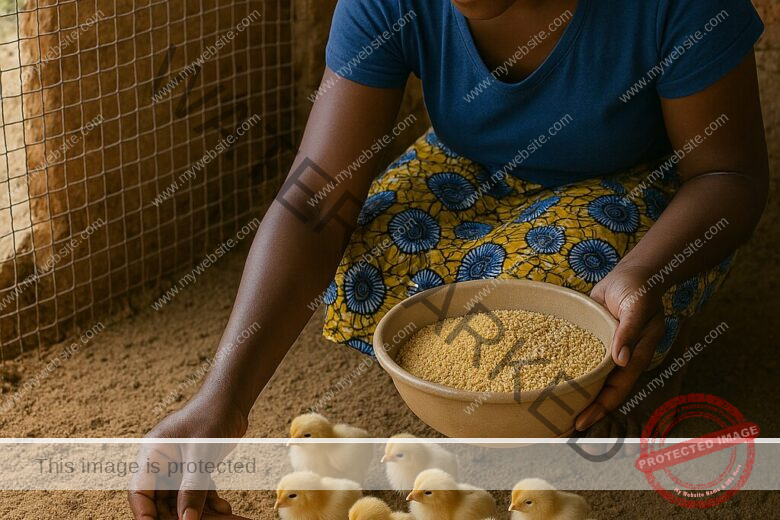Rearing Kienyeji (indigenous) chicken in Kenya has gained popularity due to its adaptability, low input requirements, and potential for profit generation. For aspiring poultry farmers, rearing 100 Kienyeji chickens can be a rewarding venture both in terms of income and food security.
To rear 100 Kienyeji chickens in Kenya, it will cost the farmer between Ksh. 60,000 to Ksh. 150,000 which includes the cost of feeding, building a proper coop, getting suitable accommodation, and other miscellaneous spending associated with raising these chickens.
In this guide, I will delve into the comprehensive costs associated with rearing 100 Kienyeji chicken and provide insights for newcomers on how to get started successfully.
Cost Of Rearing 100 Kienyeji Chicken In Kenya
Kienyeji chickens, also known as indigenous chickens, are local breeds that have evolved over generations to adapt to the Kenyan environment. They are renowned for their resistance to diseases, low feed requirements, and ability to forage for their own food.
Read Also: [Pdf Sample] Poultry Farming Business Plan In Kenya Docx
Compared to commercial broilers, Kienyeji chickens have a longer growth cycle and are often considered a more sustainable option for small-scale farmers.

Cost Components of Rearing 100 Kienyeji Chicken
Chick Acquisition: To start, one must source day-old Kienyeji chicks. These can be obtained from reputable hatcheries or local suppliers. The cost per chick varies but is typically affordable, ranging from Ksh 50 to 100 per chick, depending on the breed.
Read Also: How To Start Poultry Farming Business In Kenya
Housing: Providing a suitable housing environment is crucial. A simple coop with proper ventilation, lighting, and protection from predators is necessary. The cost of constructing a coop for 100 chickens can vary, but an estimated cost is around Ksh 30,000 to 50,000.
Feeding: Kienyeji chickens are renowned for their ability to forage, but supplementing their diet with nutritious feeds is important for optimal growth and egg production. The cost of feed for 100 chickens over several months can amount to around Ksh 20,000 to 30,000.
Read Also: 10 Profitable Animal Farming Business You Can Start In Kenya
Healthcare and Vaccinations: Regular vaccinations and healthcare interventions are vital to prevent disease outbreaks. The cost of vaccines, medications, and veterinary services can range from Ksh 5,000 to 10,000.
Labour: Depending on the scale of operation, labor costs for daily care and maintenance of the chickens should be factored in. If the farmer is managing the farm alone, this may not be a significant cost, but larger operations might require additional help.
Read Also: How To Start Grasscutter Farming in Kenya
Miscellaneous Costs: This includes expenses such as bedding material, waterers, feeders, and cleaning supplies, which can total around Ksh 5,000 to 10,000.
Total Estimated Cost
Summing up the above components, the total cost of rearing 100 Kienyeji chicken can range from Ksh 60,000 to 115,000, depending on various factors including location, management practices, and cost fluctuations.
Read Also: [Beginners Guide] How to Start Rabbit Farming in Kenya
Getting Started as a New Farmer
Research and Training: Before embarking on your venture, invest time in learning about Kienyeji chicken rearing. Attend workshops, seminars, and engage with experienced farmers to gain insights into best practices.
Selecting a Suitable Location: Choose a suitable location for your chicken farm, ensuring access to clean water, proper drainage, and protection from extreme weather conditions.
Housing and Coop Construction: Design and build a comfortable and secure coop for your chickens. Adequate space allocation, proper ventilation, and easy cleaning are key factors to consider.
Read Also: [Beginners Guide] How to Start Pig Farming Business Kenya
Chick Sourcing: Choose reputable hatcheries or suppliers for your day-old chicks. Ensure they are healthy and disease-free.
Feeding and Nutrition: Provide a balanced diet that includes commercial feeds, kitchen scraps, and access to foraging areas. Consult with experts to determine the appropriate feeding regimen.
Healthcare and Hygiene: Establish a regular healthcare schedule, including vaccinations, deworming, and disease prevention measures. Maintain cleanliness within the coop to minimize disease risks.
Read Also: [Beginners Guide] How To Formulate Poultry Feed In Kenya
Record Keeping: Maintain detailed records of expenses, vaccination schedules, growth rates, and egg production. This data will help you make informed decisions and track your progress.
How much does a Kienyeji chicken cost in Kenya?
The cost of a Kienyeji chicken in Kenya can vary based on factors such as age, breed, and location. On average, a mature Kienyeji chicken can range from Ksh 600 to 1000.
How much does it cost to raise 100 chickens in Kenya?
Raising 100 Kienyeji chickens in Kenya involves various costs, including chick acquisition, housing, feeding, healthcare, and more. The total cost can range from Ksh 60,000 to 115,000, depending on factors like feed prices and construction expenses.
How much does it cost to raise 500 Kienyeji chickens in Kenya?
Raising 500 Kienyeji chickens would naturally incur higher costs compared to raising 100. Estimated costs for 500 chickens could range from Ksh 300,000 to 575,000, depending on the same variables mentioned earlier.
How many months does a Kienyeji chicken take to mature?
Kienyeji chickens typically take around 5 to 6 months to mature. This can vary slightly based on factors like breed, feeding regimen, and management practices.
Read Also: Top 5 Richest Poultry Farmer In Kenya
How many eggs does a Kienyeji chicken lay?
On average, a Kienyeji chicken can lay about 150 to 200 eggs per year. However, this can vary depending on the specific breed, environmental conditions, and the level of care provided.
Which Kienyeji chicken breeds are best in Kenya?
Some popular and well-regarded Kienyeji chicken breeds in Kenya include the KARI Kienyeji, Kuroiler, and Rainbow Rooster. These breeds are known for their suitability to the Kenyan climate and good egg production.
How many bags of grower feed for 100 broilers?
For 100 broilers, you might require around 4 to 6 bags of grower feed (each bag typically weighing around 25 kg), depending on the growth rate and feeding efficiency of the birds.
How long does it take for Kienyeji chicken to start laying eggs?
Kienyeji chickens usually start laying eggs around 5 to 6 months of age. This timing can vary among individual birds and breeds.
Can poultry farming make you rich in Kenya?
Poultry farming has the potential to be profitable in Kenya, but success depends on factors like effective management, proper planning, market demand, and adherence to best practices. While it might not guarantee immediate wealth, it can provide a steady income source.
What is the difference between Kienyeji chickens and broilers?
Kienyeji chickens are indigenous breeds that are well-adapted to the local environment. They have a longer growth cycle and are more suited for free-range or backyard farming. Broilers, on the other hand, are specially bred for fast growth and high meat yield within a short period. They are typically raised in controlled environments.
What is the difference between Kienyeji and improved Kienyeji?
Improved Kienyeji refers to Kienyeji chicken breeds that have been selectively bred to enhance specific traits like growth rate, egg production, or disease resistance while retaining their indigenous characteristics. These improvements aim to strike a balance between the advantages of both indigenous and commercial breeds.
What do you feed Kienyeji chickens?
Kienyeji chickens should be provided a balanced diet comprising commercial poultry feed, grains, kitchen scraps, and greens. This diverse diet supports their natural foraging instincts and overall health.
How do you feed Kienyeji chicken from day one?
From day one, Kienyeji chicks should be given a high-quality starter feed containing essential nutrients for healthy growth. As they mature, their feed can transition to grower and layer feeds, tailored to their developmental stages.
What can I give my Kienyeji chicken to grow faster?
To promote faster growth, ensure your Kienyeji chickens have access to nutritious feeds, clean water, and suitable living conditions. Providing adequate protein and vitamins through a balanced feed can encourage healthy growth.
Is keeping Kienyeji chicken profitable?
Kienyeji chicken farming can be profitable if managed well. Factors such as proper housing, nutrition, disease control, and market demand play a significant role in determining profitability. Effective management practices and an understanding of the market are key to achieving success in this venture.
Conclusion
Rearing 100 Kienyeji chicken in Kenya is a promising venture for both income generation and food security. With the right knowledge, proper management practices, and careful financial planning, new farmers can navigate the challenges and reap the rewards of this sustainable poultry farming endeavor. Remember that patience, continuous learning, and a genuine commitment to the welfare of your flock are essential elements for success in Kienyeji chicken farming.




